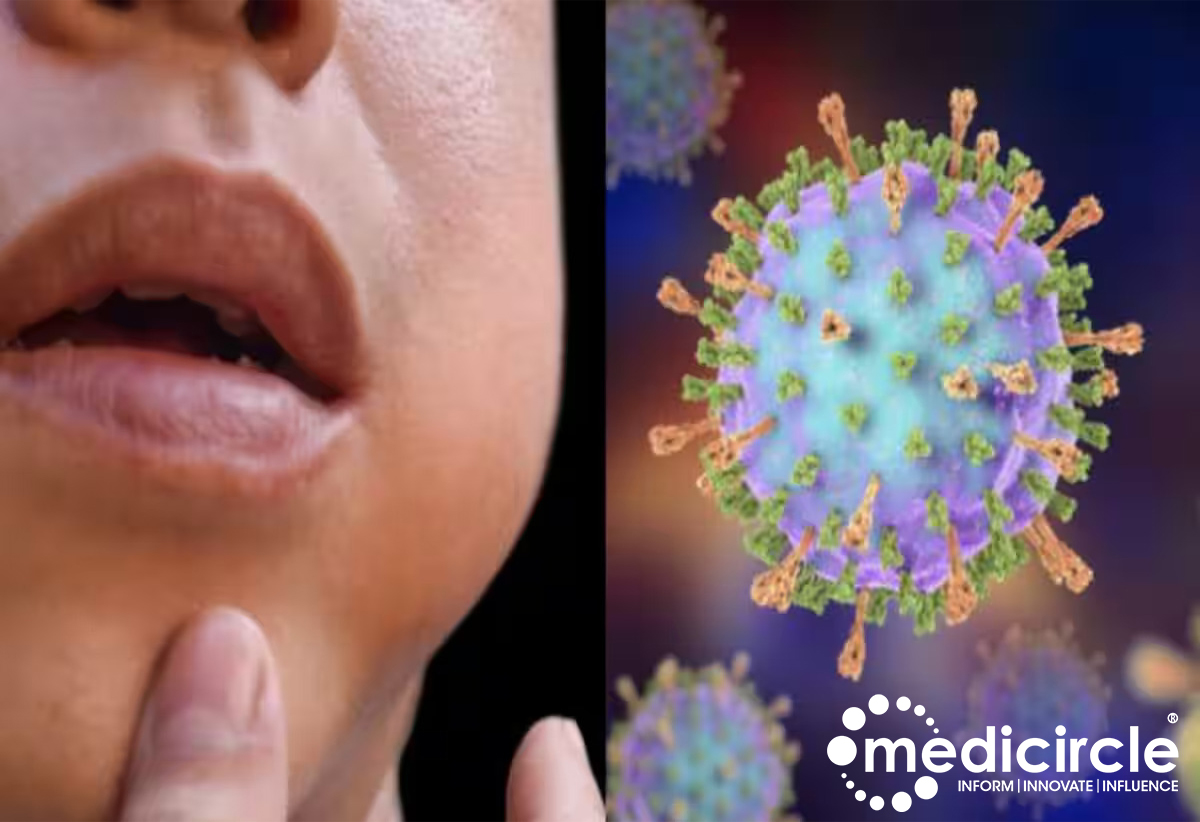As Kerala grapples with a surge in mumps cases, health authorities are racing against time to contain the spread of this viral disease. With 2,505 reported cases this month alone, the situation has sparked concerns among state health officials, prompting urgent measures to mitigate the outbreak. From understanding the symptoms and causes to exploring prevention strategies, here's an in-depth look at the mumps epidemic gripping Kerala and beyond.
Understanding Mumps: Mumps, caused by the paramyxovirus, manifests with a range of symptoms, including swelling and pain in the parotid glands, fever, headache, muscle aches, fatigue, and loss of appetite. While most cases are mild and self-limiting, less than 1% of individuals may experience complications such as brain swelling or hearing loss, particularly in the post-vaccine era. With an incubation period of 2 to 4 weeks, mumps primarily affects children aged 5-9 years, although individuals of any age group are susceptible.
Vaccination: The cornerstone of mumps prevention lies in vaccination, with the measles-mumps-rubella (MMR) vaccine playing a pivotal role in containing the spread of the disease. Available in various formulations, including monovalent, bivalent, and trivalent vaccines, MMR vaccination has significantly curtailed mumps outbreaks worldwide. However, despite its efficacy, outbreaks persist, underlining the importance of maintaining high vaccination rates to achieve herd immunity and protect vulnerable populations.
Causes Behind Mumps Outbreaks: Dr. Neha Rastogi, Consultant in Infectious Diseases, sheds light on the multifactorial causes behind mumps outbreaks:
1. Lack of vaccination: Communities with low vaccination rates or pockets of unvaccinated individuals are particularly susceptible to mumps outbreaks. Declining vaccination rates diminish herd immunity, paving the way for the resurgence of preventable diseases like mumps.
2. Close contact: Mumps spreads through respiratory droplets and direct contact with infected saliva or mucus, making close living quarters conducive to transmission. Settings such as college dormitories or military barracks pose heightened risks due to their communal nature, facilitating the rapid spread of the virus.
3. Compromised immunity: Individuals with weakened immune systems, whether due to underlying medical conditions or immunosuppressive therapies, are at heightened risk of mumps and may experience more severe symptoms. Immunocompromised individuals require enhanced protection and vigilance to prevent mumps-related complications.
Tips for Symptom Relief and Recovery: While there is no specific treatment for mumps, symptomatic management plays a crucial role in alleviating discomfort and promoting recovery.
1. Supportive care: Adequate rest, hydration, and over-the-counter pain relievers can help alleviate symptoms such as fever, headache, and muscle aches.
2. Isolation: Infected individuals should be isolated to prevent further transmission, particularly to unvaccinated or high-risk individuals.
3. Vaccination: Vaccination remains the cornerstone of mumps prevention, with timely administration of MMR vaccine recommended for both children and adults.
Empowering Communities Through Prevention and Awareness: Dr. Anil MU, Consultant Pediatrician and Intensivist, emphasizes the pivotal role of vaccination and hygiene practices in mumps prevention:
1. MMR vaccine: The MMR vaccine offers robust protection against mumps, highlights the importance of vaccination adherence and awareness.
2. Hygiene practices: Simple measures such as frequent handwashing and avoiding shared utensils can help curb mumps transmission, especially in communal settings.
As Kerala and other regions grapple with mumps outbreaks, collaboration between healthcare authorities, communities, and individuals is paramount. By prioritizing vaccination, promoting hygiene practices, and enhancing awareness, we can stem the tide of mumps infections and safeguard public health. Let us unite in our efforts to protect vulnerable populations, prevent outbreaks, and build resilient healthcare systems capable of confronting emerging infectious threats.

 As Kerala and other regions grapple with mumps outbreaks, collaboration between healthcare authorities, communities, and individuals is paramount.
As Kerala and other regions grapple with mumps outbreaks, collaboration between healthcare authorities, communities, and individuals is paramount.










.jpeg)



















.jpg)
.jpeg)